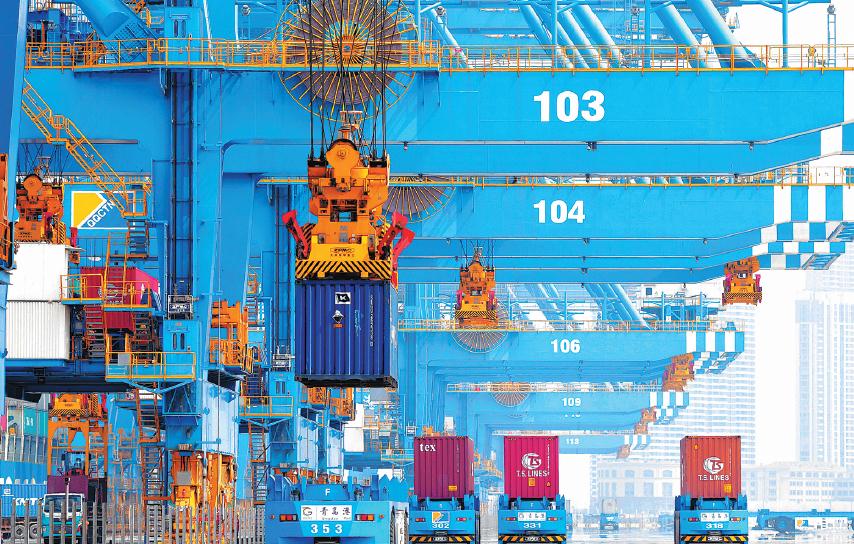GCCF to bolster biz potential for firms
Federation to provide promotion, trade, investment, legal services


The Global Chamber of Commerce Federation (GCCF) was officially launched on Friday, aiming to further break down barriers across various regions and sectors as well as help companies around the globe explore business opportunities.
The establishment of the federation was announced during the 2024 International Trade and Economic Globalization Forum held in Shanghai on Friday, which is part of the 7th China International Import Expo running through Sunday.
As a nonprofit organization, Hong Kong-headquartered GCCF mainly comprises trade associations from around the world. It will provide business promotion, trade, investment, and legal services as well as promote international cultural exchanges.
A total of 15 chambers of commerce and business associations, including China International Chamber of Commerce for the Private Sector, and Asia-Europe and the Africa Trade and Investment Promotion Association, signed agreements on Friday to become part of GCCF.
There are still quite a few problems that international trade needs to resolve, concerning resource distribution and language, said Chang Le, the new federation's initiator.
GCCF is founded against that backdrop, to link the leading chambers of commerce and ensure the authenticity and effectiveness of various business resources.
Apart from facilitating more overseas companies to set up operations in China and the outbound reach of Chinese companies, GCCF will also help foreign companies explore more business opportunities in other overseas markets. For example, by introducing Australian companies to Poland, Chang said.
Meanwhile, GCCF will also team up with leading certification organizations around the world.
The federation will provide comprehensive laboratories where the specialists of certification organizations can conduct experiments and certify results. This means, Chinese companies can complete certification in China before they tap other markets.
Despite their interest in the Chinese market, some foreign companies are not quite familiar with the laws and regulations here, which has slowed their pace of setting up new projects in the country, said Kong Fanjin, head of the macro policy research office affiliated to the National Development and Reform Commission.
Part of the GCCF's responsibilities is to provide more convenient services to these foreign companies so that they can extend their businesses in China more easily, he said.
GCCF should also serve to introduce more advanced products and management experience into China, while facilitating cultural exchanges between Chinese and foreign companies. This will not only boost world trade but is also conducive to economic growth worldwide, added Kong.
Globalization has largely facilitated the exchange of products, technologies and information as well as capital flow.
The CIIE is one of the best examples, via which products from different parts of the world are made accessible to Chinese consumers while international exhibitors get to better understand the Chinese market, said Lan Jun, head of the China Council for the Promotion of National Trade.
To further facilitate trade, Chinese companies and organizations should continue making efforts to align with international high-standard economic and trade rules by improving both the existing standards in China as well as professional services, Lan said.
In this backdrop, the various organizations and professional platforms in China should play an important role in promoting mutual recognition and merge Chinese standards with internationally accepted ones.
This will help Chinese companies allocate resources from all over the world in a more optimal way. They can then sell their products and services to more international clients and become more competitive in the global market, said Lan.




































